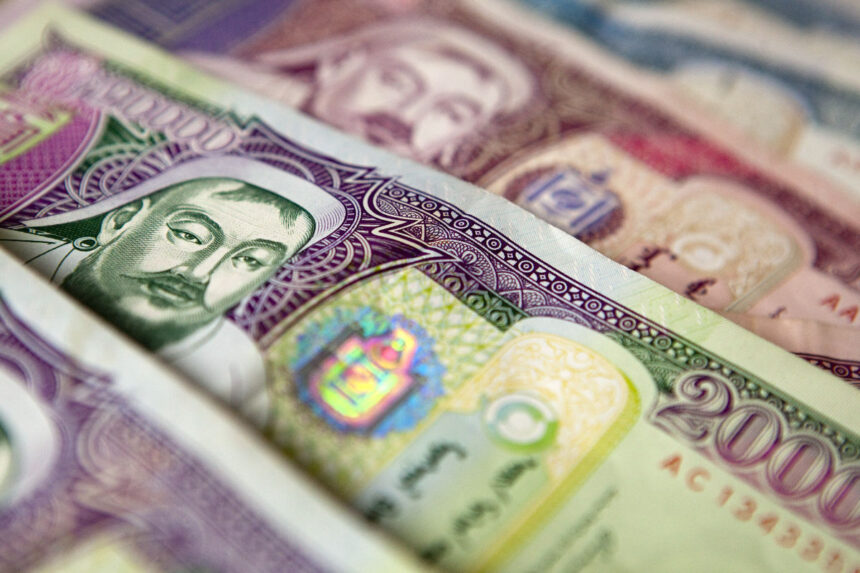Nothing happens to Mongolian economy when the world economy starts to feel ill. However, when the world economy catches a cough, Mongolia directly gets a cold. Furthermore, when the world economy has a cold, Mongolia is already in emergency room on a life support machine. It is all because Mongolia is too vulnerable. Another international financial crisis has begun due to the debt crisis in the European Union, which comprises one fifth of the world economy, and economic slowdown in the United States, which makes up one quarter of the world economy. The 3rd quarter economic report shows that the economic decline in the West is slowing down the growth rate of developing countries.
China’s foreign trade growth in September was the least of the last seven months. China’s trade with its biggest partner, EU, was increased by 10%, which is 2.2 times less than it was in August. China’s exports decline causes a slowdown in imports of developing countries in Latin America, Africa and Asia, where supplies goods and raw materials used in massive infrastructure constructions in China. The International Monetary Fund has lowered its expectations of China’s economic growth from 8.0% to 7.7%. Financial markets, which predict economic changes months ago, are sensing the changes late this time because many countries are increasing their domestic consumption.
Developing countries have begun to decrease policy rate, provide cheaper loan to private sector and increase productive public spending. When waves of global economic and financial crisis approach closer and closer, countries tend to conduct policies to intensify domestic market and accelerate production and consumption in order to restrict its dependence on foreign factors.
How about Mongolia?
Mongolian economy, which almost does not have any other exporting goods except few mineral resource products, is completely dependent on prices of those products in the world market. The economy itself is currently having a fever because of its severe Dutch disease. According to the statistics of the first three quarters of this year, even though Mongolian economy was increased by 16.7%, consumer price reached a two-digit number (10.4%) and Mongolian Tugrug to USD was depreciated by 2.29%.
Last week the President’s Council discussed about the current circumstances of monetary policy in Mongolia and its future trend and concluded that the inflation rate would be at 13-15% in 2012. The council also reported that two of every five people in Mongolia are poor in 2011 while one of every three people was poor in 2006. The ratio was increased because of providing monthly cash to every citizen as “motherland grant”. 68% of GDP last year was made up by household consumption and government spending, 41% by government and private investment and minus 9% by trade deficit. Half of the total investment was made in machinery and equipments and one tenth was made in construction. However, total investment in infrastructure sector, which is the main condition for long term economic growth, was decreased.
Loan was increased by 64% compared to the 3rd quarter of last year and interest rate did not go down, but it started going up last September. Average interest rate of Tug rug loan was 17.2% and that of foreign currency was 12.7% in commercial banks of Mongolia as of August, 2011. Even though interest rate of tug rug has been decreasing for the last 10 years, it was increased up to 22% due to high inflation during the 2008-2009 financial crisis, which is likely to happen again now.
Although the Central Bank of Mongolia is continuing with its tight monetary policy and is holding its policy interest rate at 11.75%, the main reason for increasing inflation is excessive cash transactions that do not go through banks combined with expansion of underground, shadow or gray economy. Because of windfall profit tax introduction a few years ago, most of the gold mined is gone to gray economy as it was taken out secretly from Mongolian territory. Land in Ulaanbaatar is repetitively resold and price of mining licenses is concealed; these are major factors of expanding underground economy.
Prices of properties are not going down and purchasing power of people with average income is weakening because the underground economy remains powerful. These factors are dependent on government policy and operations. Thus, the government has the power and obligation to change those factors for better. Unfortunately, the government is not doing anything about it, which is encouraging the expansion of underground economy, corruption and bribery. When facing another economic crisis, Mongolia has to implement policies to expand its economy instead of shrinking it. However, Mongolia has currently no choice but to conduct tight monetary policy.
Mongolia will always be in this situation receiving blows after blows unless the underground economy shrinks, governance becomes transparent, and every single investment is made under a third party supervision and reported to the public. Sadly, the most devastating blows will keep hitting small and medium enterprises and people with middle and low income. Mongolia will acquire not only immunity against colds and coughs but also ability to recover from colds easily only if we have a stable government and a political institution, which implements long term policies and does not cheat people with false election agenda.







